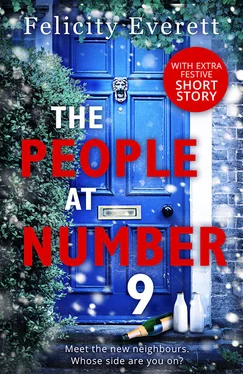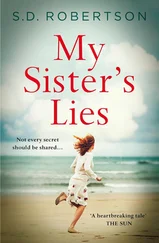“I just think it’s great how you guys give back,” Gav said, shaking his head with admiration.
“Oh, I’m no Mother Teresa…” Neil protested, through a mouthful of food. “It’s important work, don’t get me wrong, and I believe in it one hundred per cent, but they pay me pretty well. And if you heard the grief I get from some of the anarchists on the tenants’ associations, you’d think I was bloody Rachman…”
“Rachman?” Lou skewered a piece of lamb on her fork and looked up, inquiringly.
“He was a notorious private landlord in the fifties,” Neil explained, “became a byword for slum housing and corruption. I did my PhD on how he influenced the law on multiple occupancy. It was fascinating actually.”
“Neil, you can’t say your own PhD was fascinating,” Sara murmured.
“I meant doing it was fascinating.”
“So you’re Doctor Neil,” Gav said. “Very impressive. I can’t imagine having the staying power for something like that.”
“It was a bit of a slog,” Neil conceded. “Then again, I don’t suppose you leaped fully-formed from your mother’s womb wielding a paintbrush…?”
“Too true mate, and if my mother had had anything to do with it, I’d have leapt out with a brickie’s hod instead.”
He put on a broad Lancashire accent, “‘Learn a trade, our Gavin, if you want to put food on’t table.’”
“But you do put food on the table, as an artist ,” said Sara. “Surely your parents must be proud of that?”
“What do you reckon, Lou?” He turned to his wife with a rueful smile. “Are they proud?”
“We wouldn’t know, would we?” said Lou coldly.
“Lou gets very indignant on my behalf. The truth is they don’t really get it. If I was a doctor or a lawyer, I’m sure they’d be pleased, but my mum’s idea of art’s a herd of horses galloping through surf, so…”
“She knows you’ve done well,” Lou muttered, “wouldn’t kill her to say so.”
“Doesn’t bother me,” Gav said, shrugging. “I always played second fiddle to our Paula, anyway.”
“Is that your sister?” asked Sara. “What does she do?”
“She’s just a primary-school teacher,” Lou interjected, “but to hear Gav’s mum, you’d think she walked on water.” She mimicked her mother-in-law with unsparing sarcasm: “‘Our Paula’s doing an assembly on multiculturalism, Gavin. Our Paula’s taking the kids to the Yorkshire Sculpture Park.’ No mention of the fact that Gav’s got a piece in the Yorkshire Sculpture Park. Never occurs to her that she might actually stop playing online bingo for two minutes and go and have a look herself.”
“ Lulu, ” Gavin put a hand on her arm, “it’s no big deal.”
Lou’s eyes were glittering.
“That does seem a bit unfair,” said Sara, doubtfully.
“Not really.” Gavin shrugged. “I mean, artists aren’t very useful, are we? People don’t actually need art.”
“God Gavin,” Lou fumed, “I hate it when you put yourself down. You’re an important contemporary artist, represented by a top gallery.”
“I know,” Gavin laughed, “and I never stop wondering when they’re going to rumble me.”
“What do you mean?” Neil asked.
“Well honestly, what is it I do? Just muck about really, like those kids our Paula teaches. I just haul my guts up in three dimensions; I play around with bits of old rubbish until they start to look like the things I fear or loathe or love and then I put them out there and amazingly, people seem to get it.”
“ Some people,” said Lou.
“Well,” said Neil, draining his wineglass and placing it decisively back down on the table. “Sara’s too shy to ask, so I will. When are we going to get a look at your studio?”
“Neil!” Sara turned to him indignantly.
“Haven’t you seen it yet?” Gavin seemed surprised. “Oh no, you haven’t, have you? That was Stephan and Yuki. Come on then!”
He slapped his thighs and stood up. So much for their banter last evening, Sara thought – the Chelsea oligarchs long forgotten. Nevertheless, she couldn’t quell a fluttering in her stomach as she rose, unsteadily, to follow him. She only wished she were feeling her bright, articulate best, instead of fuzzy with drink. As she wove her way towards the spiral staircase which led to the studio, she tried to recall some of the aperçus she had read when she’d googled his latest show, but the only phrase that sprang to mind was “spastic formalism”, and she couldn’t see that tripping off her tongue. Lou dried her hands on a tea towel and moved to join them, but Gav turned to her with a look of pained regret.
“Do you think maybe one of us should stay up here in case Zuley wakes up?”
“Oh…okay,” Lou gave him a tight little smile and turned away. Sara struggled to shake off the feeling that she had somehow usurped her friend, but that was silly – Lou must be up and down these stairs all the time, she would hardly wait on an invitation from her own husband.
Her qualms were quickly overtaken by astonishment and fascination when they emerged, not into the picturesque, messy studio of her imagination but into a stark, brightly lit space more reminiscent of a morgue. She could see at a glance that a lot of money had been spent here. There were the specialist tungsten light fittings, the open drains running down each side of the concrete floor, the coiled, wall-mounted hose and gleaming stainless-steel sinks. There were rolls of mesh, and rows of white-stained buckets, and in the centre of the room a large zinc workbench, on which lay the only evidence of what you might call, if you were feeling generous, creative endeavour. Sara edged forward to get a closer look. She could see what appeared to be a rudimentary human form made out of wire mesh, which protruded here and there through a slapdash layer of fibrous plaster. It reminded her, both in its diminutive size – about two-thirds that of an actual human, and its tortured attitude – of the writhing, petrified bodies she had seen in the ruins of Pompeii.
“Gosh!” she said.
“I suppose this is a work in progress?” said Neil hopefully.
Gavin smirked.
“And if I told you it’s the finished article?”
“I’d say I don’t know much about art, but I know when someone’s taking the piss,” said Neil affably. Sara darted him an anxious glance, but Gavin was laughing.
“You’d be right,” he said. “Come and have a look at this.”
He led them through a swing door, into a space three times the size of the first room. Neil emitted a low whistle.
“What I can’t get over,” he said afterwards, as they sat up in bed, discussing their new friends with the enthusiasm of two anthropologists who have stumbled on a lost tribe, “is the scale of it. I mean, I knew it had to be big – all the earthworks; the noise – but I didn’t realise it would be that big. The plumbing alone must have cost…” He closed one eye, but bricks and mortar was his specialist subject and it didn’t take him long, “… four or five K and they must need a mother of a transformer for those lights. I’m glad I’m not paying the bills.”
“I know,” said Sara, “but what gets me is the contrast. That really practical work-space and then you see the end-product and it’s so moving, so human.”
“Right,” said Neil doubtfully.
“Didn’t you like it?”
“No, I did . It’s just… I didn’t get why… he’s obviously a consummate craftsman … and yet on some of them the finishing looked quite rough and ready.”
“Oh I think that’s deliberate,” said Sara, “because others were really meticulous, really anal. And I think the ones covered with the mirror mosaic-y things were meant to be sort of fractured and damaged in a way. Don’t you think?”
Читать дальше












